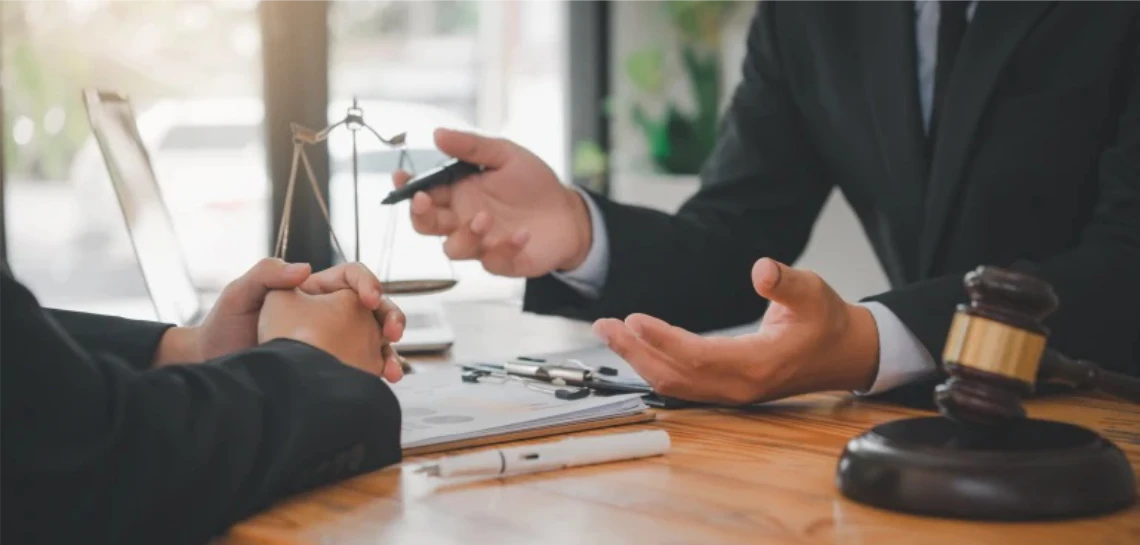
While legal representation is not required in small claims court, having a small claims lawyer can be beneficial depending on the complexity of the case and your comfort level with legal procedures. Small claims court is designed to be accessible for individuals without legal training, making it possible to represent yourself.
However, if the case involves intricate legal issues, substantial amounts of money, or not confident in navigating the legal process, consulting with a small claims lawyer near you can provide guidance. It is advisable to weigh the specifics of your case and make an informed decision about whether to seek legal representation in small claims court.
Should I Hire a Law Firm for Small Claims Court?
Hiring a law firm for small claims court depends on the circumstances of your case and your comfort level with legal procedures. Some factors that you must consider are as follows:
- Complexity of the Case: If your case involves intricate legal issues, and multiple parties, hiring a law firm can provide expertise to navigate the complexities effectively.
- Preparation and Strategy: Lawyers can help you prepare a strong case, gather evidence, and develop a strategic approach to present your argument effectively in court.
- Negotiation and Settlement: Law firms can negotiate with the opposing party to settle on the court date, potentially saving you time and stress.
- Time Constraints: If you have limited time to prepare for the case or are unfamiliar with legal processes, a law firm can manage the details on your behalf.
Can I Sue Someone in Small Claims Court?
Yes, you can sue someone in small claims court to resolve disputes over money or property. Small claims court is designed to provide an accessible and simplified legal process for individuals to resolve relatively minor disputes without formal legal representation.
Types of Cases Handled in Small Claims Court
Small claims courts handle a variety of cases involving relatively minor disputes. While the specifics can vary by jurisdiction, common types of cases handled in small claims court include:
- Unpaid Debts: Cases where individuals or businesses are seeking payment for goods, services, loans, or other debts owed to them.
- Property Damage: Disputes over damage caused by negligence or accidents, such as a car accident or damage to a rental property.
- Contract Disputes: Cases involving disagreements over the terms of contracts or agreements, including breach of contract claims.
- Security Deposit Disputes: Cases, where tenants seek the return of a security deposit from landlords or landlord’s claim damages beyond the deposit.
- Landlord-Tenant Issues: Disputes between landlords and tenants, such as eviction for unpaid rent, property damage, or lease violations.
- Personal Injury: Some jurisdictions allow personal injury claims if the damages are below a certain threshold.
- Consumer Complaints: Cases involving faulty products, poor services, or deceptive business practices.
- Employment Disputes: Cases related to unpaid wages, wrongful termination, or workplace-related issues.
- Small Business Disputes: Disagreements between small businesses, partners, or clients over payment, services, or contracts.
- Neighbor Disputes: Disagreements between neighbors, such as property boundary disputes, noise complaints, or shared property issues.
- Minor Property Claims: Cases involving damage or loss of personal property, like a dispute over a borrowed item.
What Should I Expect In The Small Claims Lawsuit Filing Process?
The small claims lawsuit filing process generally involves several key steps, though specific procedures may vary depending on your jurisdiction. Some of the steps may include the following:
- Research and Preparation: Research your local small claims court rules and regulations. Determine your case is eligibility and gather all relevant evidence, documents, and information to support your claim.
- Filling out Forms: Obtain the necessary court forms from the small claims court or their website. Fill out the forms accurately, providing details about your claim, the defendant, and the amount you seek.
- Filing the Complaint: File the completed forms with the appropriate small claims court. Pay the required filing fee, which varies by jurisdiction and is typically based on the amount you’re suing for.
- Serving the Defendant: Ensure that the defendant is adequately served with a copy of the court documents, informing them of the lawsuit. Depending on local rules, this can be done by mail, in person, or through a process server.
- Pretrial Conference or Mediation: Some jurisdictions require parties to attend a pretrial conference or mediation session to explore settlement options and potentially resolve the dispute without going to trial.
- Preparing for Trial: If no settlement is reached, prepare your case for trial. Organize your evidence, witnesses, and relevant documents supporting your claim.
- Attending the Trial: Attend the scheduled trial date. Present your case, provide evidence, and explain your side of the dispute. The defendant will have the opportunity to present their case as well.
- Judgment and Enforcement: The judge will decide and issue a judgment after the trial. If you win, you may need to take further steps to enforce the judgment and collect any awarded amount.
Need Legal Help? Contact a lawyer
Small claims court is generally designed to be user-friendly and accessible to individuals without legal representation. However, legal advice can still be valuable.
Be sure to understand your local court’s procedures and requirements thoroughly, and consider seeking legal guidance if your case is particularly complex or unsure about any aspect of the process. A small claims attorney can provide valuable guidance by helping you understand your legal rights, navigating complex procedures, and presenting a solid case in court.
